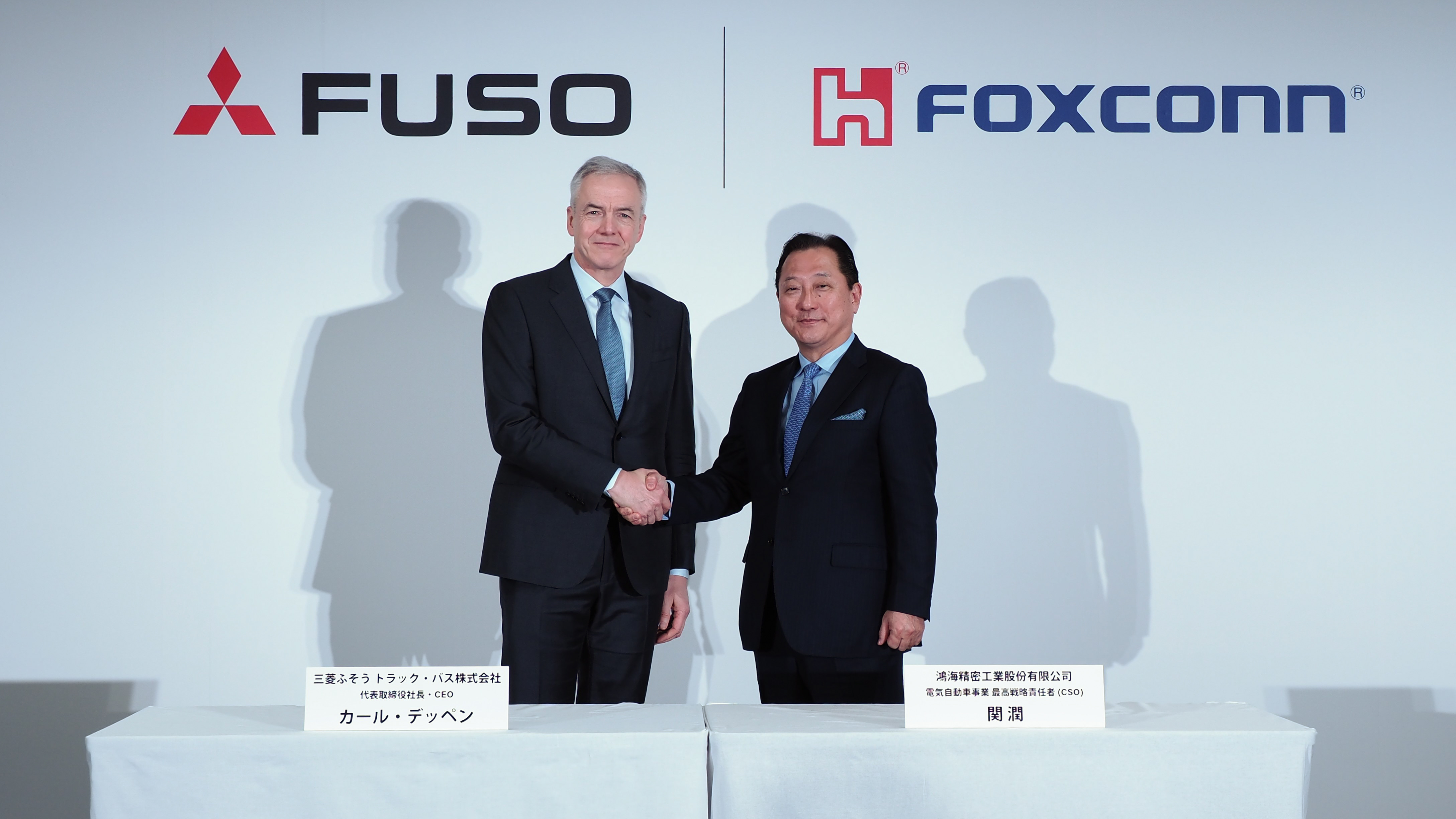31 October 2025,
Taipei, Taiwan – QunaSys,
a leading innovator in quantum-chemistry
software with a Japan–Europe footprint, and Hon Hai Research Institute, the research arm of Hon Hai Technology Group
(Foxconn), today announced the acceptance of their joint research paper “Neural
Network Assisted Fermionic Compression Encoding: A Lossy-QSCI Framework for
Scalable Quantum Chemistry Simulations” in Physical Review Research.
This is the first major research achievement completed following the announcement in 2024 of the collaboration between the two parties to develop advanced fermionic encoding methods. The paper presents a new framework that combines advanced fermionic encoding with neural-network–assisted decoding to enable more efficient and scalable quantum chemistry simulations. Demonstrated on molecular systems, the method achieves chemical accuracy with fewer qubits and reduced computational overhead, opening a practical path toward applications on both near-term and fault-tolerant quantum hardware.

In the core design of Lossy-QSCI, the RLE method developed by Hon Hai Research Institute effectively compresses the resources required for VQE calculations and enhances the efficiency of QSCI developed by QunaSys.
This research focuses on the challenges of applying quantum computers to chemical simulations, as traditional approaches often require a large number of qubits and massive computational resources, far exceeding the capacity of existing quantum hardware. To address this issue, QunaSys proposed the Quantum Selected Configuration Interaction (QSCI) method, which was later extended by IBM into the Sampling-based Quantum Diagonalization (SQD) framework and successfully demonstrated on IBM’s quantum computer with a 76-qubit simulation.
Although the experimental results were remarkable, the quantum advantage of QSCI over traditional computation methods rooted in chemical knowledge remained under scrutiny due to numerical challenges. To overcome this limitation, the joint research team leveraged patented results from Hon Hai Research Institute and introduced a novel “Fermionic Compression Encoding” framework, enhanced with machine-learning–assisted decoding. This approach effectively utilizes established chemical knowledge to compress the information content of molecular systems while maintaining simulation accuracy. In simple terms, it equips quantum computers with a “smart compression tool,” enabling them to perform more efficient and accurate chemical simulations with fewer resources.
This breakthrough carries significant potential value for industries. In pharmaceuticals, it could accelerate the design of new drug molecules. In materials science and renewable energy, it can speed up the simulation and discovery of next-generation batteries, catalysts, and advanced materials. For the quantum industry, the framework helps address current hardware limitations, enabling near-term quantum computers to demonstrate more practical applications while laying the foundation for future fault-tolerant quantum systems. This study not only highlights the convergence of AI and quantum science but also provides a concrete and feasible pathway for bringing quantum computing into industrial applications.
Looking Ahead
QunaSys and Hon Hai Research Institute will continue to strengthen their collaboration by:
● Identifying practical use cases where quantum algorithms can bring clear benefits to industry.
● Developing novel quantum algorithms optimized for those use cases.
● Working toward integration of these algorithms into real-world applications and product lines.
Through these efforts, the two organizations aim to ensure that advancements in quantum research translate directly into industrial impact, helping accelerate the broader adoption of quantum technologies.
Physical Review Research, launched in 2019 by the American Physical Society (APS), is dedicated to publishing cutting-edge research across physics and interdisciplinary fields. Known for its broad scope and high visibility, the journal rapidly disseminates scientific advances worldwide. According to the latest Journal Citation Reports, it has an Impact Factor of approximately 4.5 and is ranked in the top 25% (Q1) of journals across physics and interdisciplinary categories, underscoring its strong and consistent influence.
Hon Hai Research Institute (HHRI), established in 2020 under the Hon Hai Technology Group, comprises five research institutes and one laboratory. Each unit is staffed by high-tech research professionals focused on forward-looking technologies over a three- to seven-year horizon, aiming to strengthen Hon Hai’s long-term technology and product innovation, support the Group’s shift toward being “intelligence-driven,” and enhance the competitiveness of Hon Hai’s “3+3+3” operating strategy.
QunaSys is a quantum-software company originating in Japan with a growing European presence. The company builds the QURI toolchain (SDK, VM, benchmarks) to prototype algorithms, estimate resources, and run reproducible workflows across simulators and quantum hardware—helping research and industry accelerate progress in chemistry and materials.


